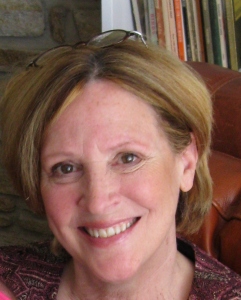When my mother was 73, she said, “I want you to find Jonathan Pinsky for me.”
I knew Jonathan Pinsky’s face from photo albums I pored over as a kid, thinking it kind of crazy that my mother was once young. I knew about Jonathan Pinsky from her stories about him. He was the smartest kid in her class and won a full scholarship to Columbia. He always had a crush on her and would drop by their house with flowers. My grandmother loved him. My mother was so-so.
“What do you mean, find him?” I asked.
“You know, go on the computer and look around and tell me what became of him. I’m curious.”
Back then, having a home computer was relatively new for people my parents’ age, and, though they’d bought one the year before, theirs had already become a Free Cell Solitaire machine by the time she asked for my help. My mother realized that I used the Internet for its true intended purposes: stalking old boyfriends and diagnosing obscure illnesses. So she went with my expertise.
I tried for many hours but couldn’t find her old friend.
Being lost to the ages like that hardly ever happens to people of my generation. Say what you will about us — we do like to keep our names and faces out there. “Greatest Generation” or not, our parents just never had the chance to ride the social media train like we have.
Facebook has been a boon to people like me who are curious about whatever became of, okay, everyone I ever met. I love it when Baby Boomers talk about navigating Facebook as if we are really tuned into modern technology. We brag about uploading a photo or unfriending someone as if we’re Navajo Code Talkers. I will say, however, that it took me only 15 seconds to find Gary Dush’s profile when I went looking for it recently. But when it comes to people’s Internet footprints, you hit pay dirt with a name like Dush, so I’m not taking any credit.
Gary was an older boy from the neighborhood. I’d known his name my whole life, partly because of its indelicacy, but also because you knew everyone’s name back then whether you ever spoke directly to him or not. Until the summer day that he became a vivid memory, he’d always been on the not side.
My two best friends and I were hanging around Jill’s house, getting in her mother’s way as she cleaned. When she turned on the vacuum, we knew it was time to move. The Rexall Drug Store, two blocks away, was always a fallback in our effort not to over-exert ourselves. It had all the essentials: a clearance bin of 45s, nail polish, and movie magazines. We saw Gary and his friends coming toward us on the sidewalk.
I can see from his Facebook profile that Gary still looks a little mean, the way he did all through childhood. No boy in Massapequa could resist taking a verbal poke at him, and I’m sure his permanently crabby mood had something to do with being called Gary Douche his whole life. Jill, Brenda, and I questioned the nickname a few times. We knew it alluded to some pink rubber contraption with a hose that Jill said she saw drying on their shower curtain rod once in a while. It had something to do with being a married woman, but that was as far as we got.
We walked to a certain pedestrian rhythm. We would eye the group coming toward us, identify them without even thinking about it since we knew everyone, and then move a few steps to the right or left so each group could get by. I don’t remember what we were talking about as Gary and his friends approached on Broadway.
I don’t know if he rehearsed his little speech, or why he chose me over Brenda or Jill. But suddenly he stopped and pointed up at me, close to my face.
“You are so ugly! No one is ever going to want to make out with you!”
They passed us. They laughed until they were out of hearing range.
I didn’t obsess until bedtime, but then the parsing began. I was okay with his first sentence. I knew it was the truth. But the second part scared me because I really was planning on having a boyfriend someday. Did he think I would never make out with him, or with anyone? Ever? Had he already made out with some beautiful girl somewhere, and that’s how he knew? How did he know?
When Gary Dush said those words to me at 13, I took it as a final verdict. A boy had said something to me, about me, so it must be true. It took some years to uncover that it really doesn’t work that way.
Gary Dush’s Facebook profile only has one photograph, and I spend a long time looking at it. Maybe he doesn’t really look mean, I think to myself. Maybe he’s just squinting into the afternoon Arizona sun. I wonder if he’s still short or if he had a late growth spurt. I wonder if he’d remember my name.
Facebook profiles are often misleading, of course, so there’s really only one thing I know for sure. And that one thing makes me smile as I close my laptop. Gary Dush missed the mark at predicting my future. By a mile.


